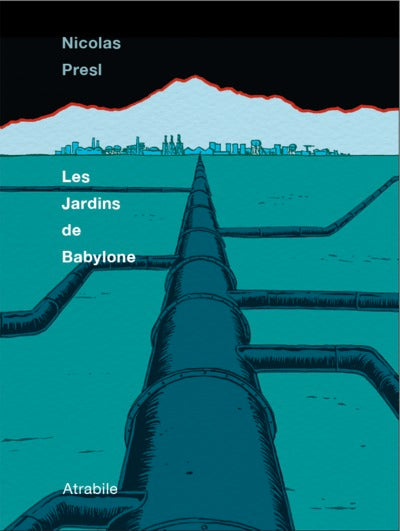Les Jardins de Babylone
- Authors: De (auteur) Nicolas Presl
- Publishers: ATRABILE
- Date of Publication: 2020-11-06
- Pages: 328
- Dimensions: 216mm x 162mm
The Earth appears very far away, seen from the Moon, and very peaceful. We can only make out
not the long pipelines that streak through arid soils and transport its goods
more precious; we do not guess the drought that is raging nor the misfortunes that it
engenders; one does not hear the complaints of the less fortunate, nor the oppression that
the latter suffer, even if anger rumbles and swells inexorably.
the Moon, we don't suffer from all that, even if we remain dependent on the Earth
and its water, which is imported in enormous flying containers. It is necessary
also, of course, be richer and more powerful than the rest of humanity
to deserve this place of choice on this sad satellite, which has become a refuge for
the world elite. Political and poetic, The Gardens of Babylon uses a
narration in several voices, where shorter chapters are nested
in a larger and more tortuous story. Nicolas Presl then draws up the
portrait of a humanity undermined by its inequalities and by the arrogance of a
minority that arrogates all rights to itself, even if greed and selfishness seem to
found in all layers of this society in peril. Between fable
premonitory and pure science fiction story, The Gardens of Babylon refuses
all Manichaeism and grasps head-on the complexity of the world and
human feelings – and if the observation can sometimes seem a little dark, it
is, fortunately, not completely devoid of hope or humor.
Share

